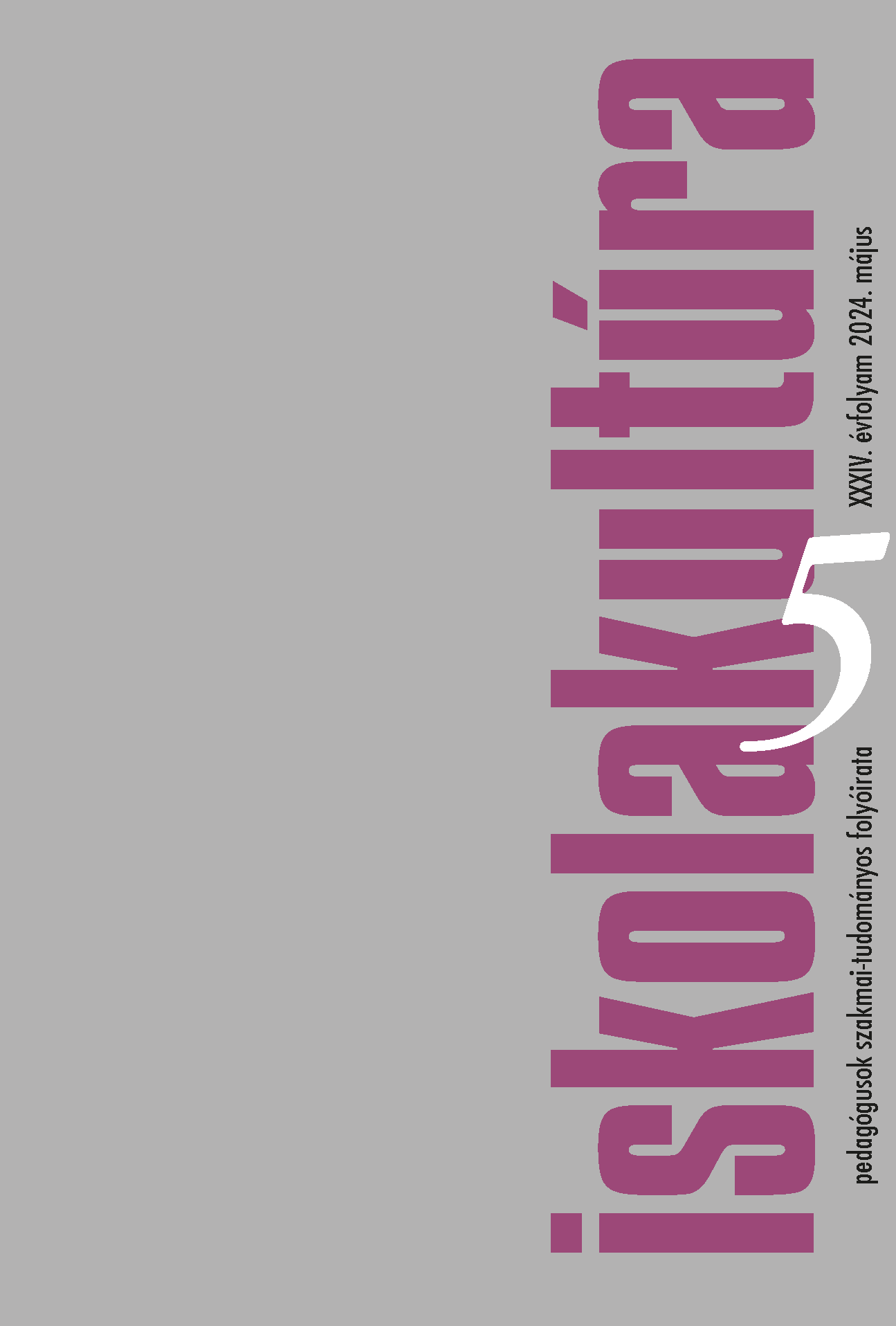Is digital education sustainable in the shadow of climate change?
Main Article Content
Abstract
Digital education is now a fundamental part of our daily lives, with the acquisition of information, communication and collaboration with peers, educators, and content creation being predominantly mediated through digital technological tools during the teaching and learning process. Recently, the focus has shifted towards the impact of artificial intelligence on education. However, there is little attention to the environmental impact of such accelerated technological development and how such a degree of digital transformation in education can be sustainable. In this study, I review the environmental impacts of digital tools and services used in education and present ways to mitigate these impacts, aiming to encourage users to take steps towards the sustainability of digital education. The development of digital competence and education plays a key role in the sustainable digital transformation in education, and it is crucial to emphasize the importance of fostering conscious and environmentally friendly technology use in education.
Downloads
Article Details
Funding data
-
Magyar Tudományos Akadémia
Grant numbers MTA Domus Program
References
Aichner, R. (2022) Microsoft Teams performance improvements reduce power consumption in meetings by up to 50%. Microsoft Teams Blog. https://techcommunity.microsoft.com/t5/microsoft-teams-blog/microsoft-teams-performance-improvements-reduce-power/ba-p/3139910
Chen, Z., & Hardy, S. B. (2023). Snapshot of the present, glimpse into the future: impact of COVID-19 on higher education and adult training. International Journal of Mobile Learning and Organisation, 17(1-2), 76-92. https://dx.doi.org/10.1504/IJMLO.2023.128350
Czirfusz, D., Misley, H., & Horváth, L. (2020). A digitális munkarend tapasztalatai a magyar közoktatásban. Opus et Educatio, 7(3). https://doi.org/10.3311/ope.394
Csapó, B., Lőrincz, A., & Molnár, G. (2012). Innovative assessment technologies in educational games designed for young students. In Assessment in Game-Based Learning (pp. 235-254). Springer, New York, NY.
Európai Bizottság (2022). A digitális gazdaság és társadalom fejlettségét mérő mutató (DESI), 2022 Magyarország. https://ec.europa.eu/newsroom/dae/redirection/document/88750
Ferrari, A. (2013). DigComp: A Framework for Developing and Understanding Digital Competence in Europe. Luxembourg: Publications Office of the European Union, 2013 doi:10.2788/52966
Gnanasekaran, V., Fridtun, H. T., Hatlen, H., Langøy, M. M., Syrstad, A., Subramanian, S., & De Moor, K. (2021, November). Digital carbon footprint awareness among digital natives: an exploratory study. In Norsk IKT-konferanse for forskning og utdanning (No. 1, pp. 99-112).
Horváth, L. (2023). Feltáró szakirodalmi áttekintés a mesterséges intelligencia oktatási használatáról. Pannon Digitális Pedagógia, 3(1). https://doi.org/10.56665/PADIPE.2023.1.1
Horváth, L. (2024). A mesterséges intelligencia lehetőségei és kihívásai a pedagógiai tervezés folyamatában. Educatio, 33(1).
Jenkin, T. A., Webster, J., & McShane, L. (2011). An agenda for ‘Green’information technology and systems research. Information and organization, 21(1), 17-40.
Mallett, J. E., & Michelson, S. (2010). Green investing: is it different from socially responsible investing?. International Journal of Business, 15(4), 395.
Mitchell, R. B., & York, R. (2020). Reducing the web's carbon footprint: Does improved electrical efficiency reduce webserver electricity use?. Energy Research & Social Science, 65, 101474.
Mónus, F., Bacskai, K., Varga, A., Berze, I. Z., Néder, K., & Dúll, A. (2022). Általános-és középiskolás diákok környezettudatosságát meghatározó tényezők a Fenntarthatósági Témahét 2021-es nagymintás vizsgálata alapján. Iskolakultúra, 32(7), 47-68.
Obringer, R., Rachunok, B., Maia-Silva, D., Arbabzadeh, M., Nateghi, R., & Madani, K. (2021). The overlooked environmental footprint of increasing Internet use. Resources, Conservation and Recycling, 167, Art-Nr.
Oktatási Hivatal (2020). A 2020-as NAT-hoz illeszkedő tartalmi szabályozók. https://www.oktatas.hu/kozneveles/kerettantervek/2020_nat
Onat, N. C., & Kucukvar, M. (2020). Carbon footprint of construction industry: A global review and supply chain analysis. Renewable and Sustainable Energy Reviews, 124, 109783. https://doi.org/10.1016/j.rser.2020.109783
Ong, D., Moors, T., & Sivaraman, V. (2014). Comparison of the energy, carbon and time costs of videoconferencing and in-person meetings. Computer communications, 50, 86-94. https://doi.org/10.1016/j.comcom.2014.02.009
Pásztor, A. (2017). Tanulói szintű visszacsatolás és fejlesztés: technológia alapú mérések alkalmazási lehetőségei a mindennapi pedagógia gyakorlatban. In Gy. Hunyady, B. Csapó, G. Pusztai, & J. Szivák (Eds.), Az oktatás korproblémái (pp. 202-212). Budapest: ELTE Eötvös Kiadó.
Porsdam Mann, S., Earp, B. D., Møller, N., Vynn, S., & Savulescu, J. (2023). AUTOGEN: A personalized large language model for academic enhancement—Ethics and proof of principle. The American Journal of Bioethics, 23(10), 28-41. https://doi.org/10.1080/15265161.2023.2233356
Sern, L. C., Zaime, A. F., & Foong, L. M. (2018, June). Green skills for green industry: A review of literature. In Journal of Physics: Conference Series (Vol. 1019, No. 1, p. 012030). IOP Publishing.
Stoll, C., Klaaßen, L., & Gallersdörfer, U. (2019). The carbon footprint of bitcoin. Joule, 3(7), 1647-1661. https://doi.org/10.1016/j.joule.2019.05.012
Tabuenca, B., Moreno-Sancho, J. L., Arquero-Gallego, J., Greller, W., & Hernández-Leo, D. (2023). Generating an environmental awareness system for learning using IoT technology. Internet of Things, 22, 100756. https://doi.org/10.1016/j.iot.2023.100756
Veluvali, P., & Surisetti, J. (2022). Learning management system for greater learner engagement in higher education—A review. Higher Education for the Future, 9(1), 107-121.
Vourikari, R., Kluzer, S., & Punie, Y. (2022). DigComp 2.2: The Digital Competence Framework for Citizens-With new examples of knowledge, skills and attitudes. Publications Office of the European Union, Luxembourg, 2022, ISBN 978-92-76-48882-8, doi:10.2760/115376, JRC128415.
Watson, R. T., Boudreau, M. C., Chen, A., & Huber, M. (2008). Green IS: Building sustainable business practices. Information systems, 17.
Zeeshan, K., Hämäläinen, T., & Neittaanmäki, P. (2022). Internet of things for sustainable smart education: An overview. Sustainability, 14(7), 4293. https://doi.org/10.3390/su14074293

